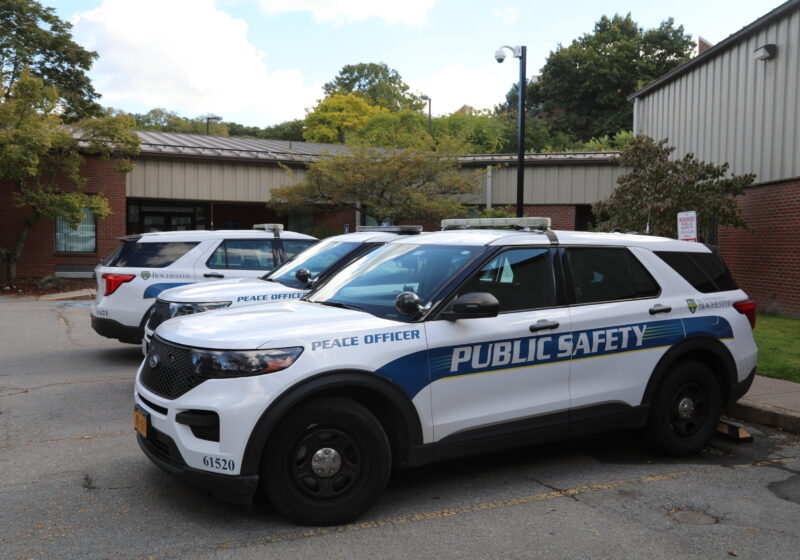Anmol Almast sat in the gallery of the Gowen Room, a little anxious. “Never know how it’s going to go,” she said with a half-smile.
It was Monday, Nov. 1, and the sophomore was waiting to take part in her first official meeting as a Students’ Association (SA) senator—the result of a decision delivered by the All-Campus Judicial Council (ACJC) three days prior that ruled on an appeal filed by Almast, the first such appeal since 2010.
Almast filed the appeal on Sept. 21, contesting the constitutionality and reasonability of the Senate’s decision to fill a vacant seat via a selection committee. The vacancy was the result of SA Vice President and senior Melissa Holloway’s resignation from the Senate on April 20, after having been elected to both her current position and to a Senate seat.
The Senate was concerned with the lack of seniors at its table; with Holloway gone, only two remained, and no other seniors had run in the spring to take her place. To the senators, having a third senior was not only an issue of representation, but an issue of adhering to the SA Bylaws. In an attempt to resolve the issue, Senate chose to form a selection committee to appoint a senator from a field of senior applicants. The body made its decision after consulting with ACJC Chief Justice Wesline Manuelpillai and Senate Election and Rules Committee Chair Paul Jaquish.
Almast, the next-highest-overall vote-getter in the spring elections, found that decision unfair—in her reading of the SA Constitution and Bylaws, the seat ought to have gone to her. She filed her appeal.
ACJC heard the case, Almast v. Students’ Association Senate, on Friday, Oct. 16 in a two-hour session in the Gowen Room. Senator and senior David Stark represented the Senate. ACJC released their decision on Friday, Oct. 30.
“The vacant seat must be offered to the candidate with the next-highest number of votes,” the ACJC decision reads. “If the next-eligible candidate declines or is unable to fill the seat, then the seat must be offered to each candidate in descending order by number of general election votes until a candidate accepts the seat, or until there are no more eligible candidates.” It continues: “At this time, the petitioner Anmol Almast is the highest vote-getter who does not have a Senate seat. As such, she must be offered the vacant seat first.”
Speaker of the Senate and senior Ethan Bidna reached out to Almast Sunday morning and “welcomed [her] to join us at the Senate table,” he wrote in a statement. Other senators also emailed her with congratulations.
After accepting the position, Almast attended a training session the same day, where she and a few freshmen senators learned about parliamentary procedure. She’s still getting used to SA jargon, though, she said on Tuesday, Nov. 2.
“It was good to see that the Bylaws were being followed,” she said that day about ACJC’s decision. “Now, based on this decision, [SA is] going to make an effort to make the Bylaws more clear.”
The decision was reached in a 6–1 vote, with one abstention. According to Manuelpillai, who did not vote in the decision, the Council’s deliberations took the form of multiple meetings spanning the two weeks ACJC gave itself to issue a ruling.
“The Council wanted to be extremely prudent with this decision,” she said in an email.
Manuelpillai expressed her relief that the appeals process has, at last, ended, but was quick to address its importance. “Appeals are an integral part of the SA Government’s checks and balances system,” she said. “Unfortunately, for over five years, this vital process fell by the wayside. I’m delighted that we were able to reintegrate the process back into the SA this year.”
The appeal and subsequent hearing illuminated the murkiness between the Constitution and the newly-updated Bylaws, Manuelpillai said, especially for members of SA government. She also highlighted how a revision to the Constitution—a possibility both she and Bidna have flirted with in the past—”would fit very well with” the goal of making SA government more democratic.
“At this time, I do not have specific details on a rewrite,” she added, “but it is definitely on the horizon.”
Bidna is glad the appeal has ended, too, echoing his ACJC counterpart. Bidna stated that he was happy “that we can focus on our mission of improving the lives of [UR] students.”
As the senators took their seats in the minutes leading up to the Nov. 1 meeting, Almast found her own, smiling at her peers. She looked down at the Senate document placed before her chair, chatted with her new colleagues. Stark flashed her a thumbs-up from down the table.
Bidna banged his gavel. Deputy Speaker Josh Hill began taking attendance—the first name on his list: “Almast.”
“Here,” she called out.
“I’d like to welcome Anmol,” Stark said soon after, an announcement received with rowdy applause. “You’re going to have a wonderful experience and contribute a lot.”
Trombly is a member of the class of 2018.






